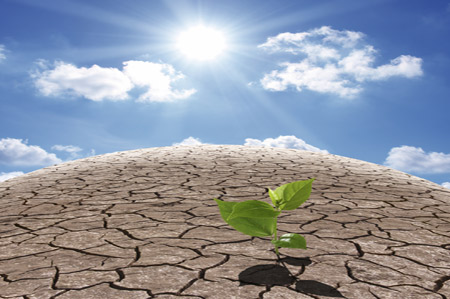Brazil’s 2019/20 Early Soybean Sowing Hampered by Dry Weather
Category: Weather
 the season, unlike in the last cycle when farmers accelerated sowing driven by good rainfall, say weather forecasters and consultancies.
the season, unlike in the last cycle when farmers accelerated sowing driven by good rainfall, say weather forecasters and consultancies.
Through Sept. 17, 2018, Paraná had 9% of the projected area sown, according to the state’s Department of Rural Economy (Deral).
But this year Paraná will hardly see any rainfall before Sept. 20, weather projections indicate.
Soy planting in Paraná usually starts in the west and later kicks off in the north. After a prolonged drought, rains in the beginning of September have not been enough to increase soil moisture, Deral said recently.
An early start to soy planting usually helps with plans for the second corn crop, which is sowed after the oilseed is harvested in much of Brazil.
This proved important in the 2018/19 season, when the country had record production of almost 100 million tonnes of corn, according to government data.
“Last year, despite the weather issues later in the harvest, we had a very good start to soybean planting. Those who planted early on in the west of Paraná managed to grow (the soy) in a good window,” said Deral economist Marcelo Garrido.
Brazil’s soybean output was 115 million tonnes in the 2018/19 season, 3.4% below the previous crop as dryness in the middle of the harvest cut yields, according to government data.
In the Center West, rains are only expected in the second half of September and early October, said Heloísa Pereira, meteorologist at Somar. Still, pockets of dry weather in some regions are likely in October, she said.
Last year, rains caused by El Niño allowed for early soybean planting in key Brazilian regions.
In 2019, Pereira noted, models show rainfall arriving later in the Center West and the Matopiba region encompassing the states of Maranhão, Tocantins, Piauí and Bahia, potentially affecting the pace of early planting, according to Somar.
Bartolomeu Pereira, president of the national grain growers association Aprosoja, told Reuters farmers worry about sowing soy seeds amid high temperatures, because this may hamper grain germination and the strength of the soy plant.
“Rains are more likely in November, which can affect soy yields and second corn planting,” he said.

